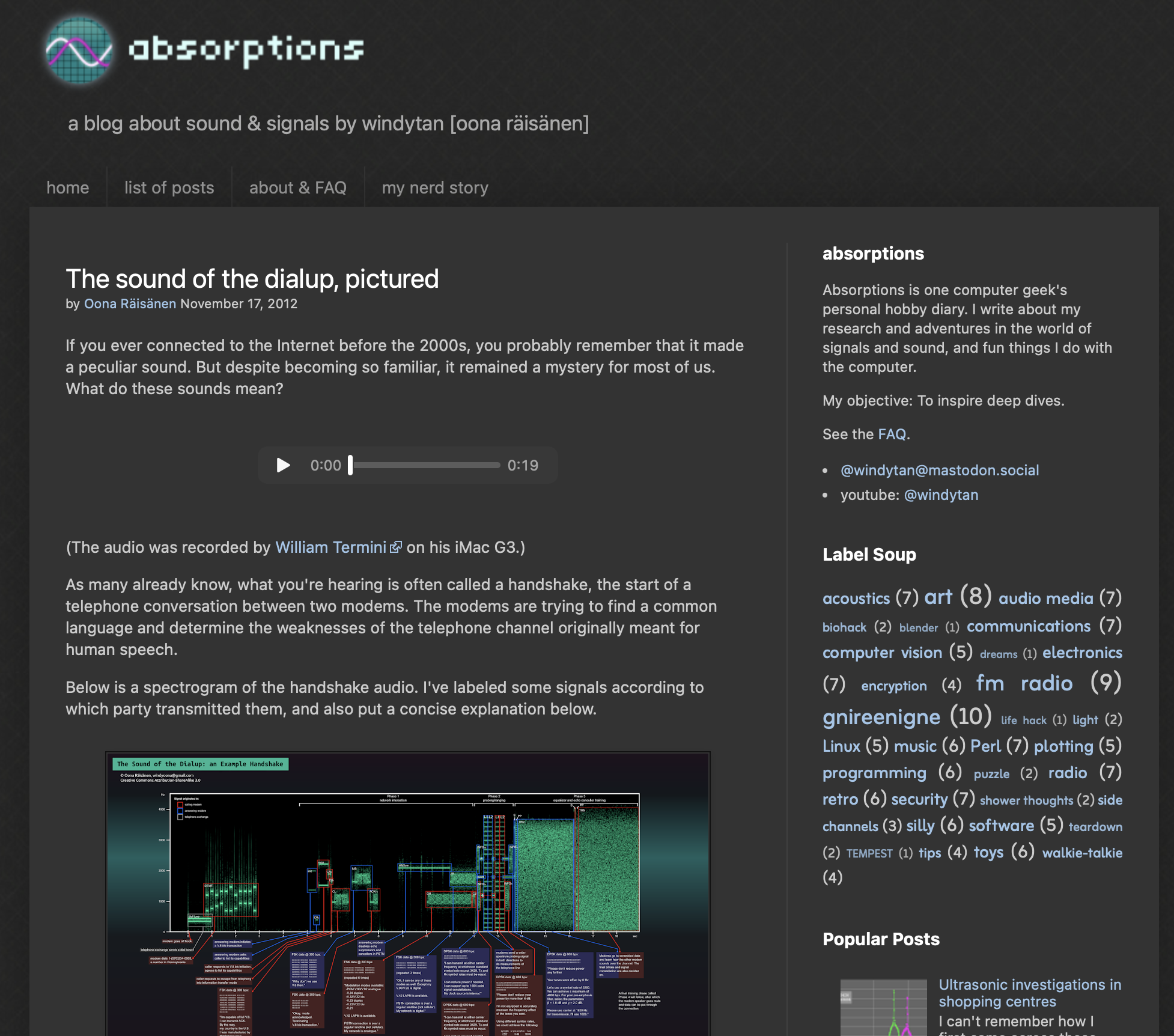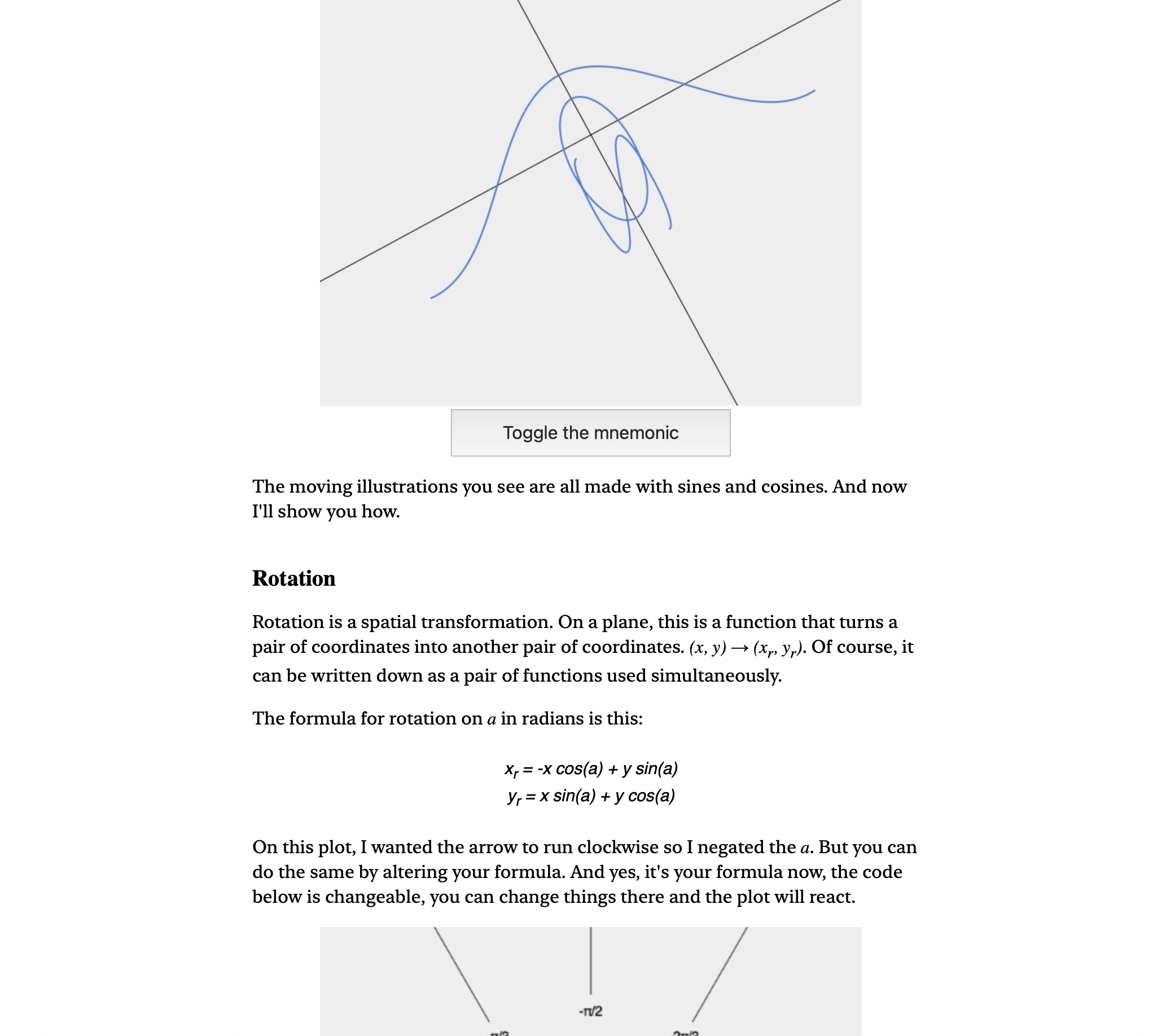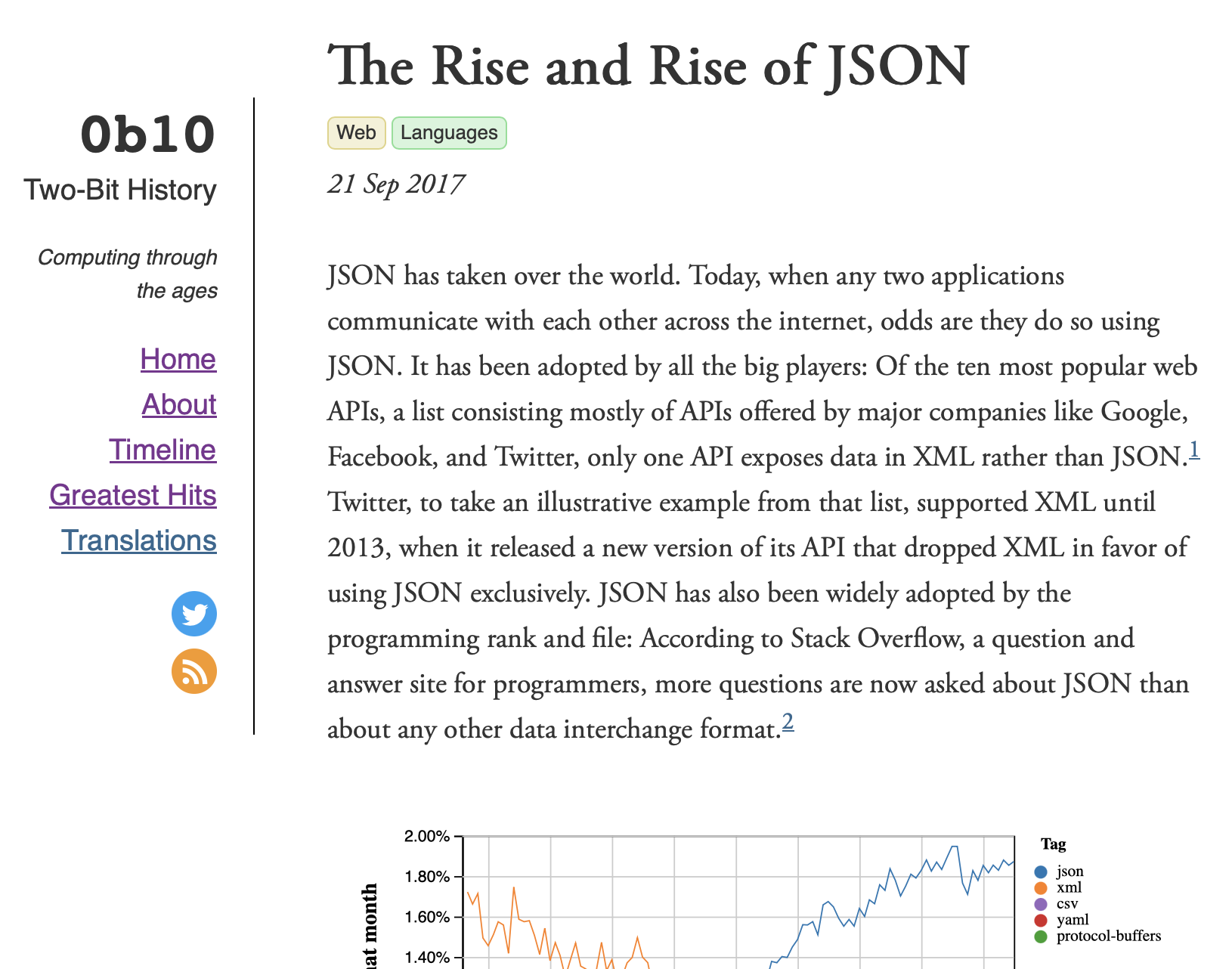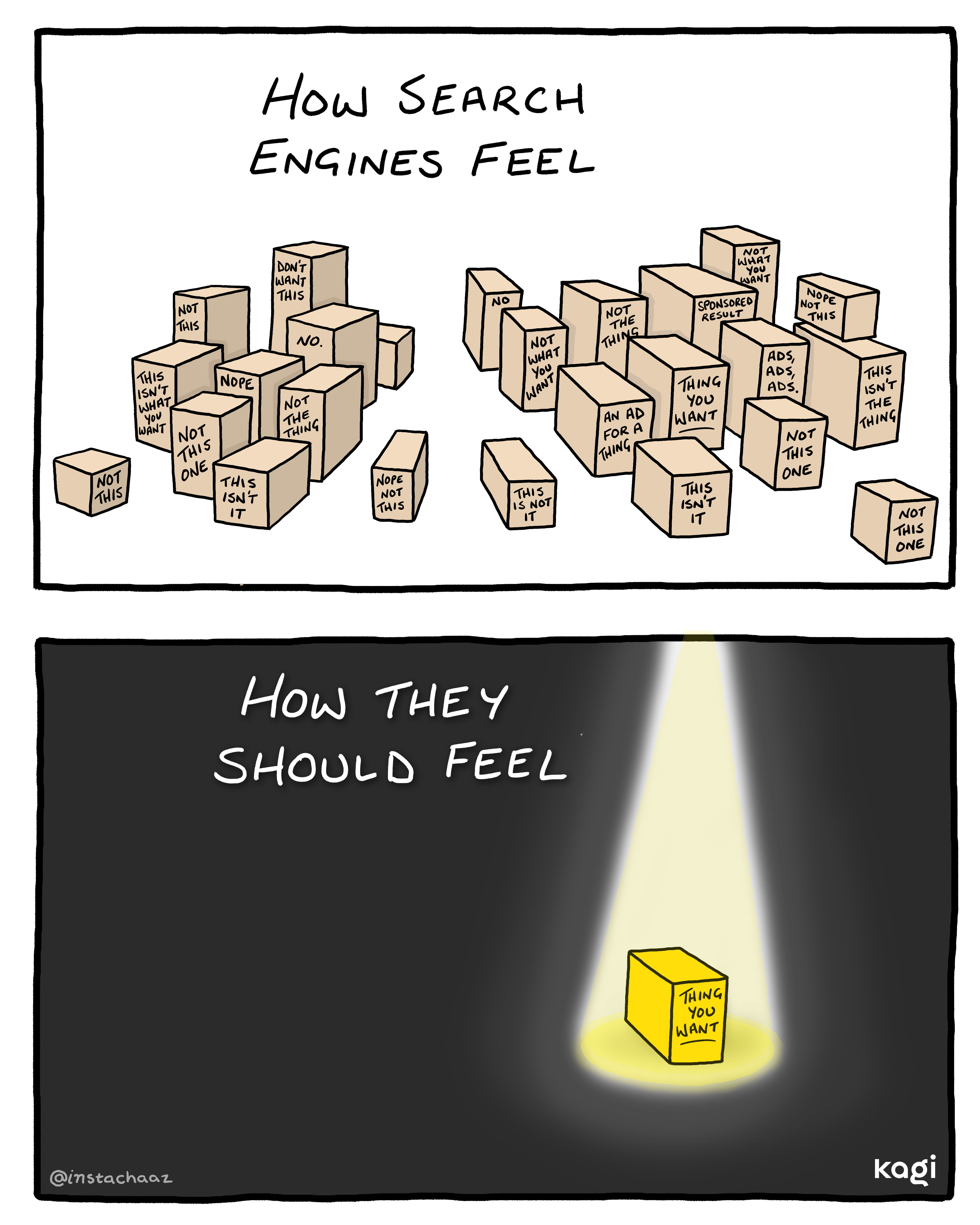Kagi Lets Me Enjoy the Web
Google bus stops at only shopping malls, but I like parks
30 Apr 2025 , by

!g bang1 to do a one-off Google search.)
Only then I realised how much that one month with Kagi search had made me enjoy the web again.
It made me want to ask more questions about random things.
Every time I did I was rewarded with a nice experience of finding a new nice article written by somebody fun.
My RSS feeds list had started to grow slowly but stopped again once I stopped using Kagi.
What I like on the web
The web is a place that does not have very high barriers for people to share their writing, their photos, their creations, and their ideas.
If you are curious about the sounds of a dialup modem, you can find this amazing blog post by windytan.
Windytan’s post about dialup modem sounds
This is how I remember the web was when I was first exposed to it. More recently, I had forgotten about this charm, warmth, and lightness-in-the-feet. There are popups everywhere, sites are heavy, they keep obstructing the page with a big imperative sign to sign in to Google, not to mention the autoplaying videos, the nags for notifications, and pleads for email addresses.2
Good news is that it is not as bad as it felt, though.
Although there was less junk earlier, websites like words and buttons, kottke.org, and xkcd are still able to exist today.
I had just stopped finding more of the same kind.
A simple mnemonic for sine and cosine on wordsandbuttons.online. Click the image to play with it.
Kagi brings back what I missed
Today I was wondering about JSON – what exactly is it?
What purpose does it serve?
Was it designed to do that, or did it just happen to be there?
Just the usual deep existential questions.
So I typed in my browser’s search bar: “why is JSON so popular”3.
Before I knew it, I was on this beautiful webpage titled The Rise and Rise of JSON.
Note the simple layout, clear text, and nice writing.
Just for kicks, I tried the same search with Google, and this same link first appears on the second page. Based on the last time I clicked on the second page of results of any search engine I think it is fair to say I would not have found twobithistory.org today if I was relying on Google.
Moreover, the results on the first page were not even comparable.
First, topmost, most highlighted, is a featured snippet:
Google’s top result to ‘why is JSON so popular’. Such a non-answer answer.
Scrolling further down the results I came across more of the websites I didn’t want: Quora, Oracle, Medium, Turing.com among others. Then, strangely, the Wikipedia article for JSON is listed. Under that there are more results from Quora, and some other SEO junk on the second page. Finally, about halfway down on the second page, twobithistory.org shows up.
All of this to say that I am finding places on the web through Kagi that I would never have stumbled upon if my whimsical Googling actually happened on Google.
Comic from Kagi’s press kit saying what took me so long to say.
-
If you’re not familiar with bangs, that’s an amazing feature and you should definitely check it out. Google and Bing are the only search engines that I know of that do not support bangs. Yes, even Ecosia. ↩︎
-
I should mention here that I don’t mind ads, but only as long as they allow me to comfortably read what I came to the page to read without covering the page, animating in and out, or being dirty. ↩︎
-
I would have put a question mark there, but that triggers Kagi’s AI summary and I wasn’t looking for a short answer, so I chose not to put the question mark. There are legitimate times when I am indeed looking for a quick summarised answer, so I am happy I can control that so easily while searching with Kagi. ↩︎